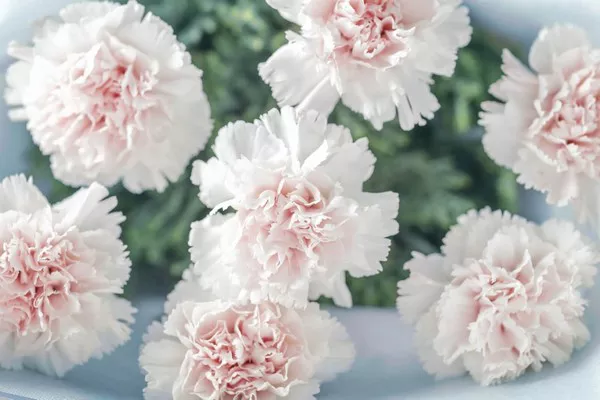Mother’s Day, celebrated annually on the second Sunday of May in many countries around the world, is a special occasion dedicated to honoring mothers and motherhood. While the ways of celebrating vary from culture to culture, one enduring tradition that has stood the test of time is the gifting of flowers. Among the myriad of blooms associated with this heartfelt holiday, one flower stands out as a quintessential symbol of maternal love and appreciation: the carnation.
Origins and History
The tradition of honoring mothers with flowers dates back to ancient civilizations, where various festivals and rituals were held to pay homage to maternal figures and fertility goddesses. However, the modern concept of Mother’s Day can be traced back to the early 20th century in the United States, thanks to the efforts of social activist Anna Jarvis. In 1908, Jarvis held a memorial for her own mother, Ann Jarvis, who had been a peace activist during the American Civil War. Inspired by her mother’s compassion and advocacy, Anna campaigned tirelessly for the official recognition of Mother’s Day as a national holiday.
It was during this time that the carnation emerged as a popular emblem of Mother’s Day. Anna Jarvis chose this flower because it was her mother’s favorite bloom, and she believed its delicate beauty and sweet fragrance perfectly captured the essence of maternal love. In 1914, her efforts paid off when President Woodrow Wilson officially declared the second Sunday in May as Mother’s Day, forever cementing the carnation’s place in the holiday’s traditions.
Symbolism and Significance
The carnation holds deep symbolism that resonates with the spirit of Mother’s Day. In many cultures, this flower is associated with love, gratitude, and admiration, making it an ideal choice for expressing appreciation for mothers and mother figures. Its soft petals and sweet scent evoke feelings of warmth and tenderness, reflecting the nurturing and selfless nature of maternal love.
Moreover, different colors of carnations carry distinct meanings, allowing gift-givers to convey specific sentiments. For instance, pink carnations are often associated with gratitude and admiration, making them a popular choice for honoring mothers. White carnations symbolize purity and innocence, while red carnations represent deep love and affection, making them a fitting tribute to mothers who have passed away.
Cultural Significance
The tradition of gifting carnations on Mother’s Day has transcended borders and cultures, becoming a cherished custom in many parts of the world. In countries like the United States, Canada, Australia, and Japan, it is common for children to present their mothers with bouquets of carnations as a token of appreciation. In some cultures, such as Spain and Portugal, Mother’s Day is celebrated with elaborate festivals and parades where carnations play a central role in the festivities.
Furthermore, the carnation holds special significance in certain religious and spiritual traditions. In Christianity, for example, the pink carnation is associated with the Virgin Mary, symbolizing her purity and maternal love. In Hinduism, the carnation is revered as a sacred flower and is often used in religious ceremonies and rituals honoring goddesses such as Lakshmi and Parvati.
Commercialization and Modern Trends
Over the years, the commercialization of Mother’s Day has led to a proliferation of floral arrangements and gift options, including a wide variety of blooms beyond carnations. While roses, lilies, and orchids have become popular alternatives, the carnation remains a timeless classic that continues to hold sentimental value for many.
In recent years, there has been a growing trend towards sustainable and eco-friendly options for Mother’s Day gifts, including locally sourced and organically grown flowers. This shift reflects a broader cultural movement towards environmental consciousness and ethical consumerism, with many consumers opting for flowers that are grown and harvested using environmentally friendly practices.
Personal Touches and DIY Ideas
For those looking to add a personal touch to their Mother’s Day celebrations, there are plenty of creative ways to incorporate carnations into homemade gifts and decorations. From handcrafted floral arrangements to homemade bath bombs and potpourri sachets, the possibilities are endless. Additionally, children can get involved by making their own carnation-themed crafts, such as paper flower bouquets or painted flower pots.
Another thoughtful gesture is to plant a garden of carnations in honor of a special mother figure. Not only does this provide a lasting tribute to her love and legacy, but it also allows for ongoing enjoyment and appreciation of nature’s beauty throughout the year.
Conclusion
In conclusion, the tradition of gifting carnations on Mother’s Day is a time-honored custom that continues to resonate with people around the world. With its rich symbolism, cultural significance, and enduring beauty, the carnation serves as a heartfelt expression of love and appreciation for mothers and mother figures everywhere. As we celebrate this special day each year, let us remember the timeless tradition of the carnation and the enduring bond of maternal love it represents.


